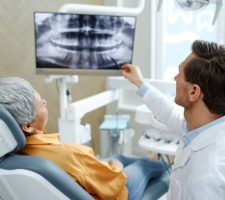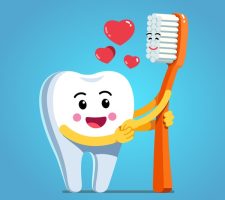Taking a proactive approach to dental health can save you from future cavities, gum disease, and costly dental procedures. An important component of preventive dentistry—often overlooked—is diet. The foods and drinks you consume can either support oral health or contribute to tooth decay and other dental issues. Let’s explore some specific items to minimize or avoid for a stronger, healthier smile.
Sugary Sweets and Treats
Your mouth’s worst enemy might be the sugary delights many people love. Consuming a high amount of candy, cakes, and other sugary treats can lead to cavities as they feed the harmful bacteria in your mouth, resulting in acid production that erodes tooth enamel. To prevent this:
-
Minimize consumption of sugary desserts.
-
Opt for sugar-free gum or snacks.
-
Clean your teeth after indulging to reduce sugar residue.
Sticky and Chewy Foods
Sticky foods, such as dried fruits or caramels, cling to your teeth, staying in contact with your enamel for longer periods. This prolonged exposure can lead to decay as saliva and brushing have a harder time removing the residue. Here’s what to consider:
-
Choose fresh fruits over dried versions.
-
Avoid candies that stick to your teeth.
-
If you do eat sticky foods, brush your teeth soon after.
Carbonated Soft Drinks and Acidic Beverages
Soft drinks, even the diet varieties, often contain acids that can weaken tooth enamel. Frequently sipping on these beverages throughout the day can keep your teeth constantly bathed in these harmful acids. It’s best to:
-
Limit intake of carbonated sodas.
-
Drink acidic drinks quickly rather than sipping over time.
-
Use a straw to minimize contact with your teeth.
Alcohol
Alcohol consumption can lead to a dry mouth due to its dehydrating effects. Saliva is crucial for washing away food particles and neutralizing acids produced by bacteria. To maintain oral health, consider reducing your alcohol intake and staying hydrated with water to support saliva production.
Pediatric dental care experts also advise parents to monitor their children’s intake of sugary beverages, including juices and sports drinks, which can have a similar effect as soft drinks and alcohol on developing teeth.
Citrus Fruits
Citrus fruits like oranges, lemons, and grapefruits are great sources of vitamin C, but their acid content can be tough on your teeth. Over time, the acids can erode the protective layer known as enamel, potentially leading to sensitivity and decay. While you don’t have to eliminate these fruits from your diet, being mindful of how you consume them can help you enjoy their benefits while minimizing harm to your teeth.
Tips for Enjoying Citrus Fruits Without Harming Your Teeth
-
Moderation is Key: Enjoy citrus fruits in moderation. Integrating a variety of foods into your diet helps balance nutrition and reduces the frequency of acid exposure to your teeth.
-
Rinse After Eating: Drink water after eating citrus fruits. Swishing with water can help wash away the acids, reducing their potential to erode enamel.
-
Combine with Dairy: Eating cheese or drinking milk after consuming citrus can help neutralize the acid, thanks to its alkaline nature and the calcium content that can aid in remineralizing teeth.
Coffee and Tea
These popular beverages can stain teeth and often contain tannins, which can lead to color changes over time. If you can’t give up your daily cup, remember to:
-
Limit added sugars.
-
Consider drinking through a straw.
-
Brush or rinse your mouth after your drink.
Whitening treatments, such as those used by a dentist in Staunton, VA, can help combat staining, but prevention is always a better approach.
Hard Candies and Ice
Chewing on hard candies or ice can lead to cracked or chipped teeth. The physical damage, on top of the sugar content of many hard candies, poses a double risk for your oral health. To avoid unnecessary dental emergencies:
-
Refrain from chewing on ice or hard objects.
-
If you enjoy hard candies, let them dissolve naturally instead of chewing.
Starchy Foods That Linger
Items such as chips and bread might seem harmless at first glance, but they can be problematic. Starchy foods often get lodged between teeth, breaking down into simple sugars, which can contribute to plaque buildup. Be sure to:
-
Floss regularly to remove food particles trapped between teeth.
-
Choose whole grains over refined starches, which are less ‘sticky’.
Cost Considerations and Dental Choices
Maintaining a diet that promotes oral health can also affect the financial aspect of dental care. For instance, the Invisalign cost may reflect treatment complexity, which can be impacted by the state of your oral health. Mitigating damage through diet can lead to simpler and more cost-effective dental treatments.
Wrapping Up
Monitoring and adjusting your dietary habits can play a significant role in preventive dentistry. By avoiding or limiting the intake of the foods and drinks listed above, you can proactively protect your smile. Remember, a balanced diet not only benefits your overall well-being but also helps keep your teeth and gums in prime condition.
Regular check-ups with your dental professional and a consistent oral hygiene routine complement these efforts, creating a comprehensive preventive approach to dental health.



